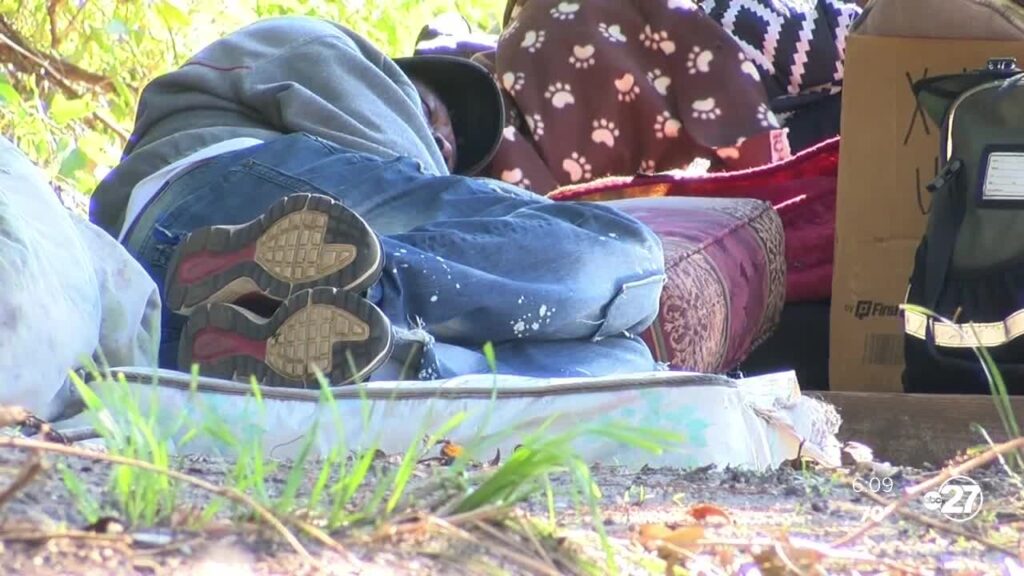
Florida is poised to implement a contentious measure that will ban homeless individuals from setting up camp or sleeping on public property. The bill, which was passed by the Legislature, now awaits the approval of Republican Governor Ron DeSantis, who has voiced support for the initiative.
This move has ignited a fierce debate between proponents touting it as a practical solution to alleviate the homeless crisis and critics condemning it as a mere attempt to conceal the issue from public view.
Republican Senator Jonathan Martin, the bill’s sponsor, said, “It’s our responsibility to deal with homelessness, and that’s why we can’t wait any longer to bring this solution. The current model is not working.” Martin underscores the necessity of addressing the homelessness epidemic, emphasizing that approximately 30,000 Floridians lack permanent shelter, with half of them residing without any form of shelter. He contends that the bill offers a compassionate response to the shortage of shelters, providing a structured approach to assist the homeless while curbing the nuisance of encampments in public areas.
However, Democratic Senator Shevrin Jones of Miami Gardens challenges this perspective, arguing, “This bill does not and it will not address the more pressing and root cause of homelessness.”
Jones criticizes the legislation for merely relocating homeless individuals without providing a comprehensive strategy to tackle the underlying causes of homelessness. He raises concerns about the potential consequences of concentrating homeless populations in designated encampments, highlighting issues regarding safety, sanitation and the proximity of vulnerable groups such as children and sexual offenders.
Opponents of the bill also stress the absence of safeguards to prevent the cohabitation of disparate groups within government-designated encampments. They caution against the lack of provisions ensuring the safety and well-being of residents in these encampments, expressing apprehension about the potential risks posed by inadequate living conditions.
The proposed legislation defines public camping as “residing overnight in a temporary outdoor habitation used as a dwelling or living space and evidenced by the erection of a tent or other temporary shelter, the presence of bedding or pillows, or the storage of personal belongings.” Notably, it exempts individuals sleeping in legally parked vehicles from its provisions, signaling a recognition of alternative forms of temporary shelter.
As Florida awaits the governor’s decision, the bill is slated to take effect on Oct, 1 if signed into law by =DeSantis. The outcome of this measure will undoubtedly shape the trajectory of efforts to address homelessness in the state, with proponents hopeful for tangible solutions and critics wary of potential unintended consequences.
Florida’s proposed ban on homeless individuals sleeping on public property reflects a polarizing approach to addressing homelessness. While proponents view it as a pragmatic step towards managing the issue, opponents argue that it fails to address the root causes and may exacerbate existing challenges faced by vulnerable populations. As the state awaits a decision, the debate surrounding this legislation underscores the complex nature of homelessness and the necessity of comprehensive, compassionate solutions.